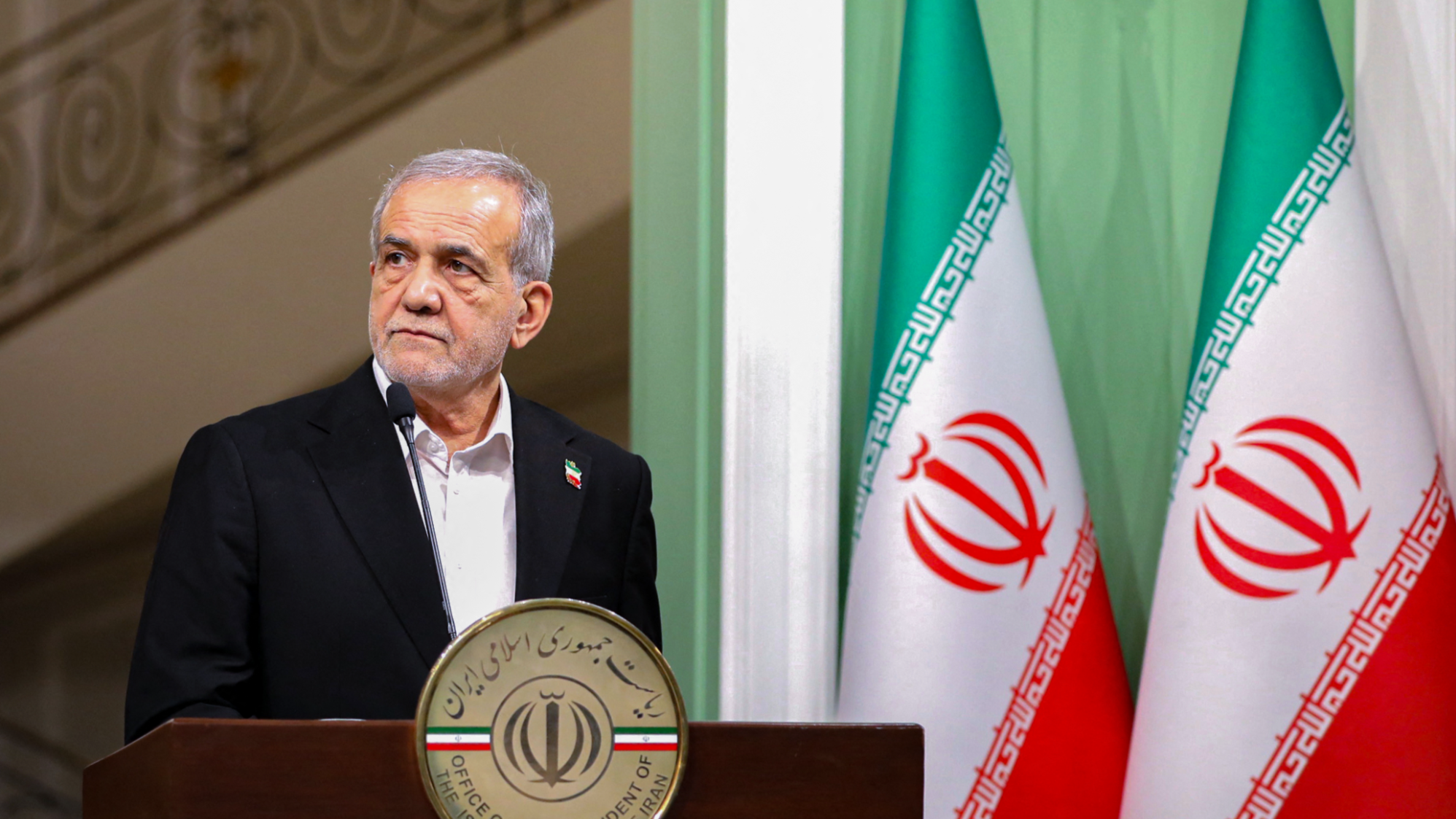
WASHINGTON/TEHRAN - US President Donald Trump surprised many on Monday by announcing direct, high-level talks between the United States and Iran over the latter's nuclear program.
The announcement came during a meeting with Israeli Prime Minister Benjamin Netanyahu at the White House.
"We're having direct talks with Iran," Trump said. "It's getting to be very dangerous territory, and hopefully, those talks will be successful."
He also disclosed that a "very big meeting" involving "very high-level" officials would be taking place this Saturday.
Trump's announced came after months of increasing pressure on Iran, including tougher sanctions on oil exports and threats of military action, while Iran's Supreme Leader Ali Khamenei has ruled out direct talks with the United States so long as Trump kept his "maximum pressure" policy in place.
"I think everyone agrees that doing a deal would be preferable to doing the obvious. And the obvious is not something that I want to be involved with, or frankly, that Israel wants to be involved with, if they can avoid it," Trump said, speaking in the Oval Office alongside Netanyahu.
"So we're going to see if we can avoid it. But it's getting to be very dangerous territory, and hopefully those talks will be successful. And I think it would be in Iran's best interest if they are successful."
ALSO READ: Iran not yet hold any negotiations with US, says foreign minister
Monday's announcement sparked mixed reactions.
Netanyahu, present at the announcement, expressed skepticism about the talks. The Times of Israel cited his words as reporting "if it fully stops Iran nukes, that'd be a good thing."
Iran has not yet confirmed its participation in the talks.
Iran seeks to negotiate only if the United States stops being "dishonorable" and proves that it also wants to negotiate, Iranian President Masoud Pezeshkian said recently.

Commenting on the possibility of indirect negotiations between Iran and the United States on the nuclear issue, Pezeshkian said Sunday night that Iran believes in negotiations, but not with one that is as "dishonorable" as the United States, which has placed Iran "under all-out pressure" and is threatening Iran every day, according to a statement published by Pezeshkian's office on Monday.
"We will negotiate with the entire world and do not want to fight with anybody. However, we will not acquiesce to being dishonored and will not negotiate at any price," he said. "They (the United States) should also prove they want to negotiate."
Iran does not want to make "unpeaceful" uses of its nuclear capabilities, he noted.
Meanwhile, Iranian Foreign Ministry spokesperson Esmaeil Baghaei said Monday that Iran is ready for any event to unfold and is militarily capable enough to stand against any "aggression or attack."
Answering a question about Iran's scenarios facing a potential US attack, Baghaei said Iran will definitely give a "decisive, immediate, and all-out response" if threats against Iran were carried out.
He also called on the International Atomic Energy Agency (IAEA) to fulfill its responsibilities regarding the constant threats uttered by the United States and Israel against Iran's "peaceful" nuclear facilities.
The issue will be discussed during an upcoming visit by IAEA Director General Rafael Grossi to Tehran, he added.
ALSO READ: Iran not yet hold any negotiations with US, says foreign minister
Trump, in an interview with NBC News late last month, threatened to launch "unprecedented military strikes" on Iran if it refused to negotiate over its nuclear program.
Iran signed a nuclear deal, formally known as the Joint Comprehensive Plan of Action, with six major countries -- Britain, China, France, Germany, Russia, and the United States -- in July 2015, accepting restrictions on its nuclear program in return for sanctions relief.
However, the United States withdrew from the deal in May 2018 and reinstated sanctions, prompting Iran to scale back some of its nuclear commitments. Efforts to revive the nuclear deal have not achieved substantial progress.


